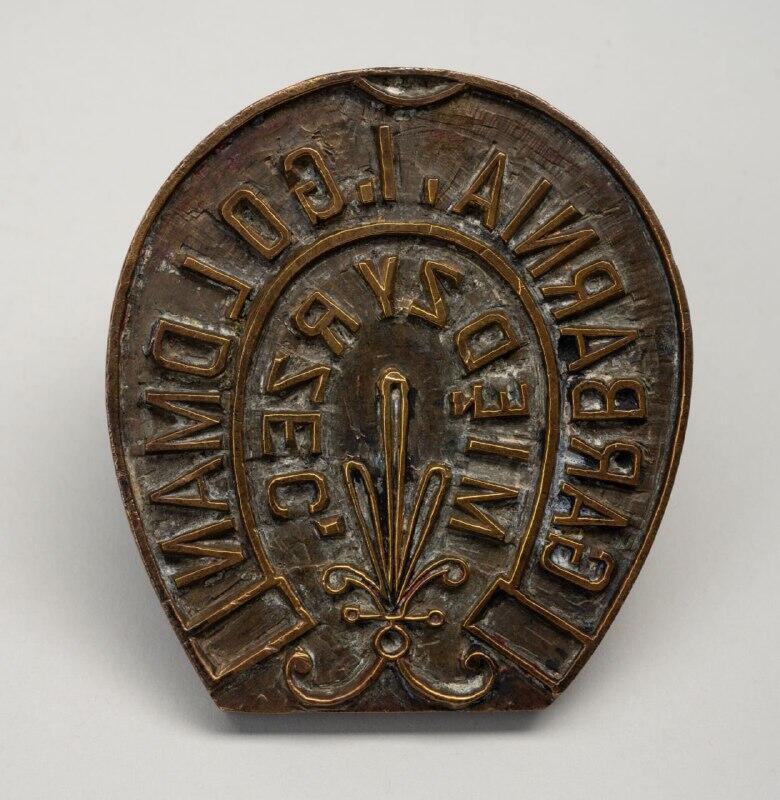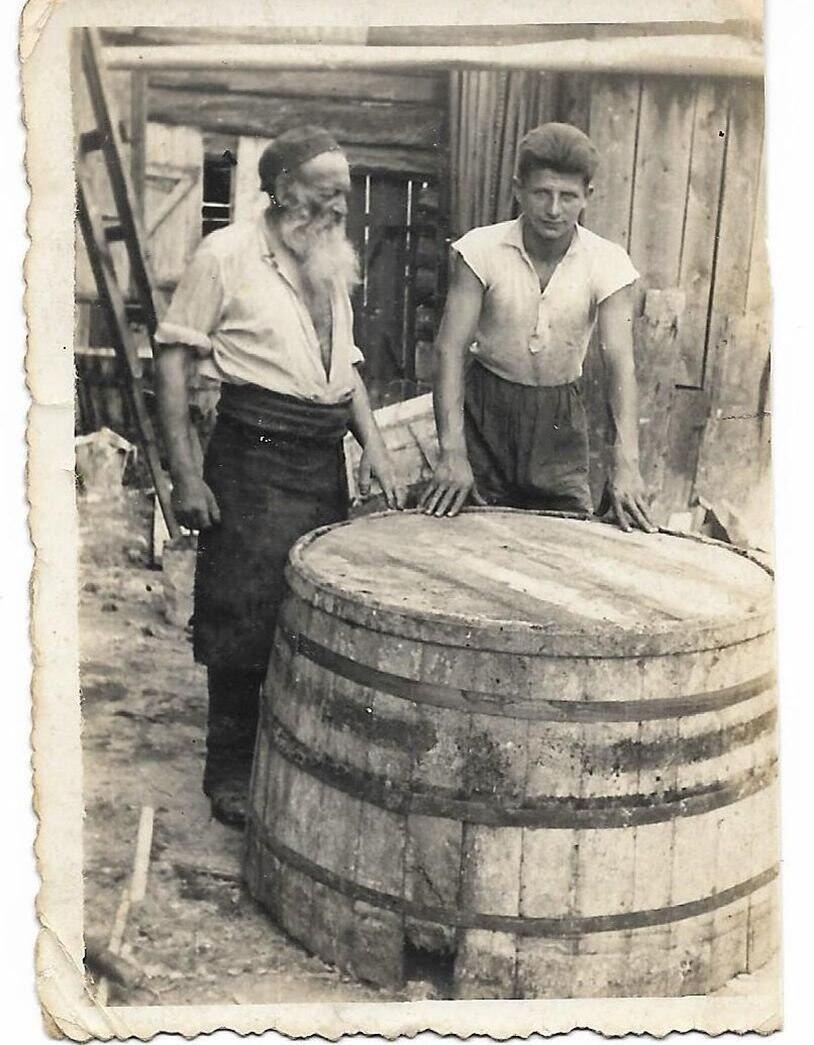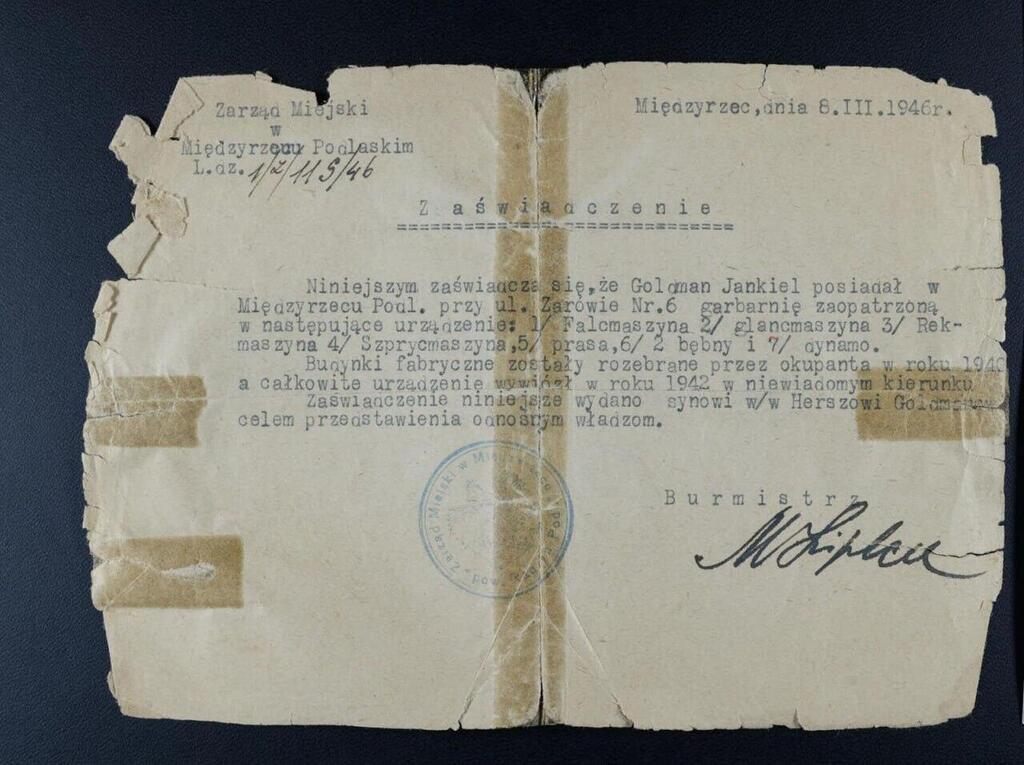Getting your Trinity Audio player ready...
Nearly a century after it was founded, a long-lost iron stamp used by the Goldman family tannery in the town of Miedzyrzec Podlaski, eastern Poland, has resurfaced. The stamp, used to mark processed leather with the family name, was discovered by chance in an old attic by a local farmer who didn’t know what it was.
Thanks to connections between Israeli descendants of the town's Jewish community and local Polish residents, the stamp was returned to the family.
"It was a deeply emotional moment," said Yaakov Goldman, a descendant of the original factory owners. "To hold an item that was part of our great-grandfather's life's work — it truly brought closure." This year, the stamp was placed in the care of Yad Vashem, alongside an extensive family archive preserved over the years.
The tannery was established in the early 20th century by Yechiel Goldman and specialized in leather processing for shoes, coats and other goods. It became one of the town's economic pillars, employing both Jewish and Polish workers — until it was shut down by the outbreak of World War II.
In September 1939, Nazi forces invaded Poland and soon reached Miedzyrzec. Persecution followed quickly, along with anti-Jewish decrees and property seizures. The Goldman family was forced to run the factory under German oversight for the Nazi war effort.
Get the Ynetnews app on your smartphone: Google Play: https://bit.ly/4eJ37pE | Apple App Store: https://bit.ly/3ZL7iNv
Work permits from 1941–1942 belonging to Hershko (Zvi) Goldman detail harsh working conditions. His 1942 identity card, stamped with a “J,” marked him as a Jew.
The Germans systematically looted the factory, dismantled its equipment and shipped the machinery to an unknown location. In 1946, the family received official confirmation that the building had been destroyed. Most of the family was murdered at Treblinka: the parents, Yaakov and Elke, daughters Leah and Esther and sons Michael and Leib-Aryeh.
Only Hershko and his sister Sarah survived. Together with members of the Lampert family — including Tsina, who would later become Hershko’s wife — they hid in a pit beneath a barn in the ghetto.
Testimonies submitted to Yad Vashem, including a diary Hershko kept between 1944 and 1945, describe their struggle after Poland’s liberation, facing hostility from some locals and a constant threat from antisemitic gangs.
Hershko and Tsina married in February 1946 in their devastated hometown. Over a decade later, in May 1957, they made aliyah to Israel. Their son, Yaakov Goldman, eventually donated the rediscovered iron stamp, along with personal and family documentation, to Yad Vashem for safekeeping.






